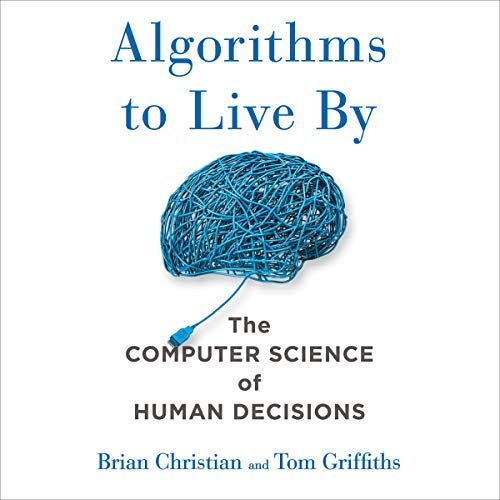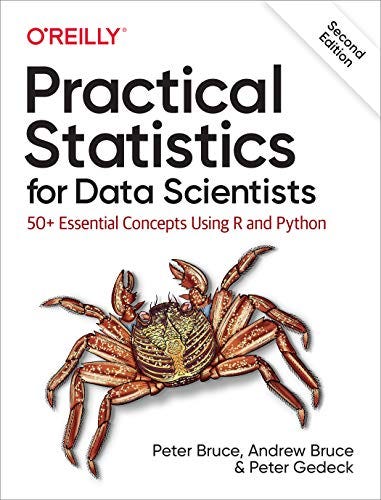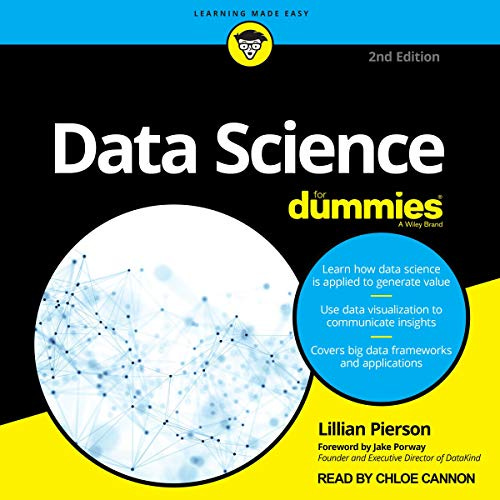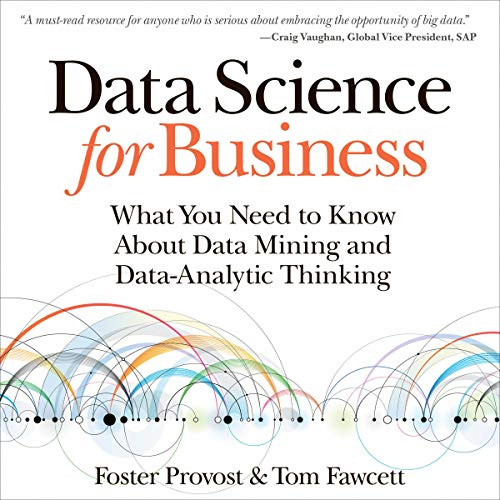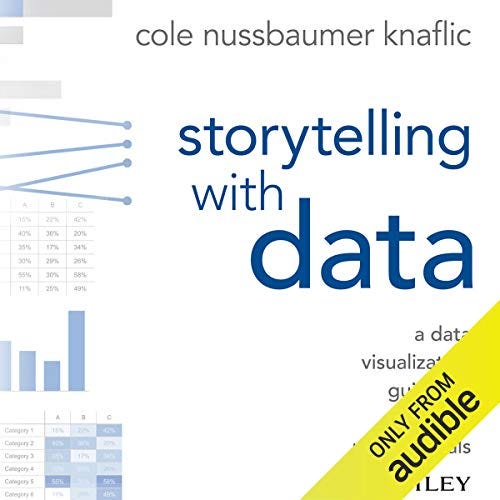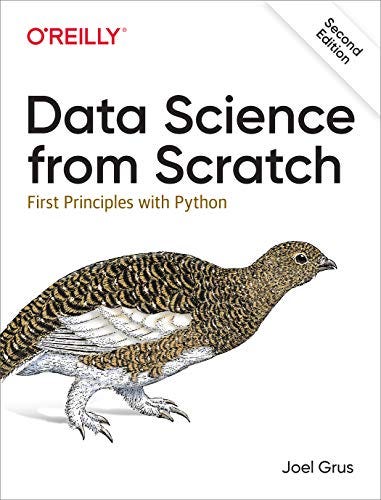6 Books Recommendation for your Data Science Learning

When we talk about data science, it is a broad topic and hard to define. Primarily the responsibility was determined by the employer and from the business problem we faced.
However, it doesn't mean we can’t learn from others. As time goes on, many expert data people have written their experiences to know, and we can learn a lot from that writing.
That is why I want to write a book that has a place in my heart and helps my career. Here are my top data science book recommendation that you should have!
Algorithms to Live By
Algorithms To Live By, written by Brian Christian and Tom Griffiths, is a book about how computer algorithms could be applied to everyday life problems.
The book description state that we would have better hunches and when to leave things to chance, how to deal with overwhelming choices and how best to connect with others.
This is the perfect book for Data scientists as we are constantly overwhelmed with many choices. Also, we are working with real-world data and need to have a thorough understanding of the algorithms.
This book is not about data science technical detail or a programming book, but you would learn more about how you could apply computer science algorithms in real life.
I love this book because this book is perfect for beginners or even experts who want to learn more about algorithms.
Practical Statistics for Data Scientists: 50+ Essential Concepts Using R and Python 2nd Edition
Practical Statistics for Data Scientists by Peter Bruce, Andrew Bruce, and Peter Gedeck, where you would learn all the statistical methods you need as a data scientist.
Why do we need to learn statistics as data scientists? It is because statistical methods are a vital part of data science. However, many modern data scientists have formal statistical training.
Various courses and books on basic statistics rarely cover the topic from a data science perspective. This book would teach you statistics from a data scientist's eye and would incorporate programming language as the tool.
If you’re familiar with the R or Python programming languages and have some exposure to statistics, you will learn quickly.
From the description, this book would teach you about:
Why exploratory data analysis is a critical preliminary step in data science
How random sampling can reduce bias and yield a higher-quality dataset, even with big data
How the principles of experimental design deliver definitive answers to questions
How to use regression to estimate outcomes and detect anomalies
Essential classification techniques for predicting which categories a record belongs to
Statistical machine learning methods that "learn" from data
Unsupervised learning methods for extracting meaning from unlabeled data.
If you feel you need an upgrade in the above area, don’t miss the book
Data Science for Dummies: 2nd Edition
Data Science for Dummies by Lilian Pierson is a perfect book for professionals and students who want a quick recap of the data science space.
This book might not teach you much about the technical part, but this book would focus more on the business cases.
The book will explore big data, data science, and data engineering topics and how these three areas are combined to produce tremendous value.
This book thou is not an instruction manual for hands-on implementation. The description mention what to expect:
Provides a background in big data and data engineering before moving on to data science and how it's applied to generate value.
Includes coverage of big data frameworks like Hadoop, MapReduce, Spark, MPP platforms, and NoSQL.
Data Science for Business: What You Need to Know About Data Mining and Data-Analytic
Data Science for business is a book written by known data science experts Foster Provost and Tom Fawcett.
The book was aimed at business people than technical people but still provides value to many data people.
I love how the book explains the complex subject in a simple matter that everyone can understand. Moreover, as data scientists, we can understand why business is essential for the data science field.
The book describes you would learn the following matter:
Understand how data science fits your organisation - and how you can use it for competitive advantage.
Treat data as a business asset that requires careful investment if you’re to gain real value.
Approach business problems data-analytically, using the data-mining process to gather good data most appropriately.
Learn general concepts for actually extracting knowledge from data.
Apply data science principles when interviewing data science job candidates.
Storytelling with Data: A Data Visualization Guide for Business Professionals
Storytelling with Data by Cole Nussbaumer Knaflic is a fantastic book for data scientists.
A data field is a big field that is not limited to statistics and building machine learning models. It is also about presentation and conveying the information to the others.
A significant factor here is the story that you tell from your data, and this book is the perfect way to learn more about it.
When it is about storytelling, we only learn it from experience because there are few courses or tools that explain it thoroughly. However, this book changes that.
The book specifically would teach you:
Understand the importance of context and audience
Determine the appropriate type of graph for your situation
Recognise and eliminate the clutter clouding your information
Direct your audience's attention to the most critical parts of your data
Think like a designer and utilise concepts of design in data visualisation
Leverage the power of storytelling to help your message resonate with your audience
Don't miss this book if you want to be a better storyteller as a data scientist.
Data Science from Scratch: First Principles with Python 2nd Edition
Data Science from Scratch by Joel Grus is one of the best books to learn data science. You would know the data science core in this book, including math and statistics.
You will also learn the hacking skills you need to start as a data scientist. The book that goes from scratch to teach you about data scientists is pretty cool, right?
In this book, you would learn various things, including:
Get a crash course in Python
Learn the basics of linear algebra, statistics, and probability—and how and when they’re used in data science.
Collect, explore, clean, munge, and manipulate data
Dive into the fundamentals of machine learning
Implement models such as k-nearest neighbours, Naïve Bayes, linear and logistic regression, decision trees, neural networks, and clustering
Explore recommender systems, natural language processing, network analysis, MapReduce, and databases.
That is all my book recommendations for you to learn data science; if you have another book, you feel essential for others to know, please share it in the comments.



